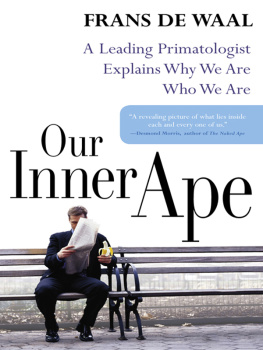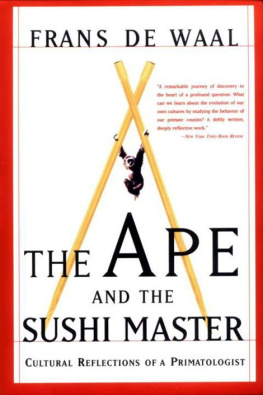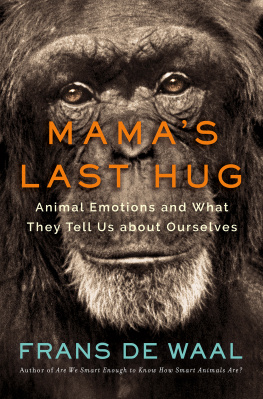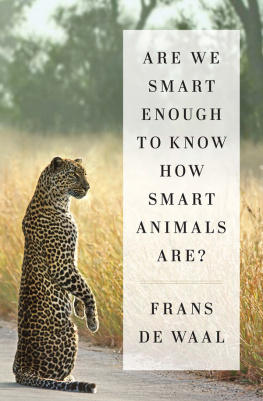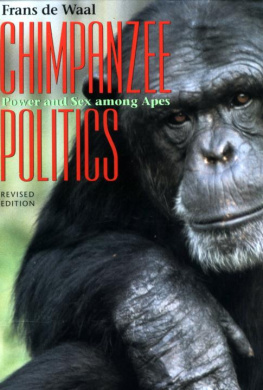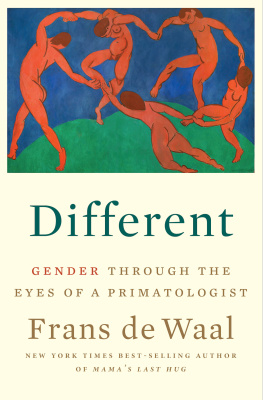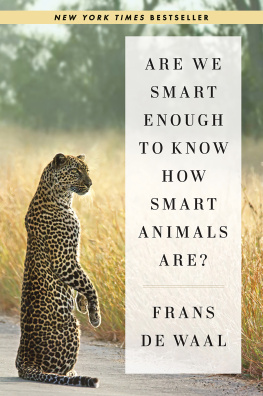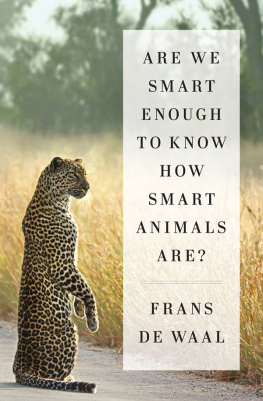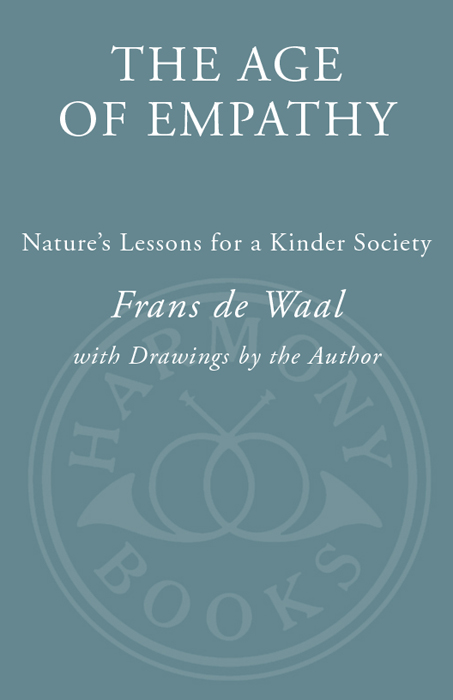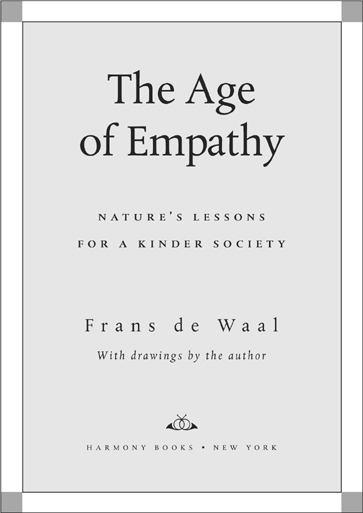Preface
Greed is out, empathy is in.
The global financial crisis of 2008, together with the election of a new American president, has produced a seismic shift in society. Many have felt as if they were waking up from a bad dream about a big casino where the peoples money had been gambled away, enriching a happy few without the slightest worry about the rest of us. This nightmare was set in motion a quarter century earlier by Reagan-Thatcher trickle-down economics and the soothing reassurance that markets are wonderful at self-regulation. No one believes this anymore.
American politics seems poised for a new epoch that stresses cooperation and social responsibility. The emphasis is on what unites a society, what makes it worth living in, rather than what material wealth we can extract from it. Empathy is the grand theme of our time, as reflected in the speeches of Barack Obama, such as when he told graduates at Northwestern University, in Chicago: I think we should talk more about our empathy deficit. Its only when you hitch your wagon to something larger than yourself that you will realize your true potential.
The message of The Age of Empathy is that human nature offers a giant helping hand in this endeavor. True, biology is usually called upon to justify a society based on selfish principles, but we should never forget that it has also produced the glue that holds communities together. This glue is the same for us as for many other animals. Being in tune with others, coordinating activities, and caring for those in need isnt restricted to our species. Human empathy has the backing of a long evolutionary historywhich is the second meaning of age in this books title.

Biology, Left and Right
What is government itself but the greatest of all
reflections on human nature?
JAMES MADISON , 1788
A re we our brothers keepers? Should we be? Or would this role only interfere with why we are on earth, which according to economists is to consume and produce, and according to biologists is to survive and reproduce? That both views sound similar is logical given that they arose at around the same time, in the same place, during the English Industrial Revolution. Both follow a competition-is-good-for-you logic.
Slightly earlier and slightly to the north, in Scotland, the thinking was different. The father of economics, Adam Smith, understood as no other that the pursuit of self-interest needs to be tempered by fellow feeling. He said so in The Theory of Moral Sentiments, a book not nearly as popular as his later work The Wealth of Nations. He famously opened his first book with:
How selfish soever man may be supposed, there are evidently some principles in his nature, which interest him in the fortune of others, and render their happiness necessary to him, though he derives nothing from it except the pleasure of seeing it.
The French revolutionaries chanted of fraternit, Abraham Lincoln appealed to the bonds of sympathy, and Theodore Roosevelt spoke glowingly of fellow feeling as the most important factor in producing a healthy political and social life. But if this is true, why is this sentiment sometimes ridiculed as being, well, sentimental? A recent example occurred after Hurricane Katrina struck Louisiana in 2005. While the American people were transfixed by the unprecedented catastrophe, one cable news network saw fit to ask if the Constitution actually provides for disaster relief. A guest on the show argued that the misery of others is none of our business.
The day the levees broke, I happened to be driving down from Atlanta to Alabama to give a lecture at Auburn University. Except for a few fallen trees, this part of Alabama had suffered little damage, but the hotel was full of refugees: people had crammed the rooms with grandparents, children, dogs, and cats. I woke up at a zoo! Not the strangest place for a biologist, perhaps, but it conveyed the size of the calamity. And these people were the lucky ones. The morning newspaper at my door screamed, Why have we been left behind like animals? a quote from one of the people stuck for days without food and sanitation in the Louisiana Superdome.
I took issue with this headline, not because I felt there was nothing to complain about, but because animals dont necessarily leave one another behind. My lecture was on precisely this topic, on how we have an inner ape that is not nearly as callous and nasty as advertised, and how empathy comes naturally to our species. I wasnt claiming that it always finds expression, though. Thousands of people with money and cars had fled New Orleans, leaving the sick, old, and poor to fend for themselves. In some places dead bodies floated in the water, where they were being eaten by alligators.
But immediately following the disaster there was also deep embarrassment in the nation about what had happened, and an incredible outpouring of support. Sympathy was not absentit just was late in coming. Americans are a generous people, yet raised with the mistaken belief that the invisible hand of the free marketa metaphor introduced by the same Adam Smithwill take care of societys woes. The invisible hand, however, did nothing to prevent the appalling survival-of-the-fittest scenes in New Orleans.
The ugly secret of economic success is that it sometimes comes at the expense of public funding, thus creating a giant underclass that no one cares about. Katrina exposed the underbelly of American society. On my drive back to Atlanta, it occurred to me that this is the theme of our time: the common good. We tend to focus on wars, terror threats, globalization, and petty political scandals, yet the larger issue is how to combine a thriving economy with a humane society. It relates to health care, education, justice, andas illustrated by Katrinaprotection against nature. The levees in Louisiana had been criminally neglected. In the weeks following the flooding, the media were busy finger-pointing. Had the engineers been at fault? Had funds been diverted? Shouldnt the president have broken off his vacation? Where I come from, fingers belong in the dikeor at least thats how legend has it. In the Netherlands, much of which lies up to twenty feet below sea level, dikes are so sacred that politicians have literally no say over them: Water management is in the hands of engineers and local citizen boards that predate the nation itself.


